BLOG
Blog

March 28, 2025
Electricity supply is a fundamental service in sectional title schemes, and disputes often arise when owners fall into arrears or fail to comply with scheme rules. The Sectional Titles Schemes Management Act 8 of 2011 (STSMA) provides clear guidelines on how the body corporate must handle such situations, including whether electricity can legally be disconnected. Legal Framework for Electricity Disconnection The STSMA, in conjunction with other relevant laws, governs the management of common property and shared services in sectional title schemes. Some of the key legal provisions include: Electricity as a Basic Service: The disconnection of electricity, especially when it supplies a private unit, is a contentious issue as it can be seen as a violation of basic human rights. Unlawful Disconnection: The Prevention of Illegal Eviction from and Unlawful Occupation of Land Act (PIE Act) and municipal by-laws protect occupants from having their electricity supply unlawfully disconnected. The body corporate does not have the right to disconnect an owner's electricity without following proper legal procedures. Debt Collection and Legal Processes: Instead of disconnecting electricity, the body corporate must follow the correct legal avenues for recovering arrear levies, such as applying to the Community Schemes Ombud Service (CSOS) or initiating legal proceedings. When Can Electricity Be Disconnected? While the body corporate cannot unilaterally disconnect electricity due to unpaid levies, there are limited situations where disconnection may be justified: Municipal Disconnection: If the body corporate fails to pay municipal accounts due to non-payment by owners, the municipality may disconnect the electricity supply to the entire scheme. Violation of Conduct Rules: If an owner illegally tampers with the electricity supply, causing harm to common property, the body corporate may have grounds to take action, including requesting a service provider to cut off illegal connections. Contracted Bulk Electricity Supply: In some sectional title schemes, the body corporate contracts directly with an electricity provider for bulk supply. If an owner fails to pay their share, the agreement with the provider may allow for disconnection, but this must be done in accordance with the contract and legal requirements. Legal Steps for Dealing with Arrear Payments Instead of disconnecting electricity, the body corporate should take the following legal steps to recover outstanding levies: Issue Formal Demands: The body corporate must provide written notices requesting payment before taking legal action. Apply Interest on Arrear Levies: Interest can be charged on overdue amounts in accordance with the body corporate's rules. Engage in Mediation via CSOS: If disputes arise, the Community Schemes Ombud Service can mediate and resolve the issue legally. Obtain a Court Order: If necessary, the body corporate can seek a court order to recover outstanding amounts. Dispute Resolution for Owners Facing Disconnection If an owner believes their electricity has been unlawfully disconnected, they can: Challenge the Disconnection: Owners can file a complaint with CSOS or approach the courts for relief. Request a Payment Plan: Owners struggling with arrears may negotiate a repayment plan with the body corporate. Seek Legal Assistance: If electricity is unlawfully disconnected, legal action can be taken against the responsible parties. Conclusion The STSMA does not grant the body corporate the right to arbitrarily disconnect an owner’s electricity supply due to unpaid levies. Instead, proper legal processes must be followed to recover outstanding amounts. Sectional title schemes must balance financial management with legal and ethical considerations, ensuring that owners’ rights are protected while maintaining the financial health of the scheme.

March 28, 2025
The growing demand for sustainable energy solutions has led many sectional title scheme owners to explore the installation of solar panels. The Sectional Titles Schemes Management Act 8 of 2011 (STSMA) provides guidance on how solar panels can be installed while ensuring that owners' rights, common property regulations, and the interests of the body corporate are maintained. Legal Considerations for Installing Solar Panels Under the STSMA, the installation of solar panels must be handled in accordance with the following key legal provisions: Common vs. Exclusive Use Property: The placement of solar panels is a critical consideration. If they are installed on an owner’s section (such as a private balcony or rooftop area assigned to a specific unit), approval may be simpler. However, if installation affects common property (such as shared rooftops), a special resolution by the body corporate is required. Sectional Title Rules and Amendments: Any scheme-wide solar energy project or rule amendment regarding solar installations must comply with prescribed management and conduct rules. A special resolution may be necessary to amend scheme rules to allow solar panel installation. Structural and Aesthetic Impact: Since sectional title schemes are shared living spaces, the external appearance of buildings is governed by the body corporate. Owners must obtain trustee consent before making alterations that could impact the aesthetics or structural integrity of the building. Approval Process for Solar Panel Installation To install solar panels legally and without dispute, owners should follow these steps: Submit a Formal Request: The owner must apply to the body corporate, detailing the proposed installation, including technical specifications, location, and impact. Trustee and Body Corporate Approval: If the installation affects common property, trustees must assess whether a special resolution is needed. Compliance with Municipal and Building Regulations: Owners must ensure that solar panel installations comply with national and local building regulations, including electrical and safety standards. Legal Agreements and Maintenance Responsibilities: Owners and the body corporate should clearly define maintenance responsibilities for solar panels to prevent future disputes. Benefits of Solar Panels in Sectional Title Schemes The installation of solar panels offers several benefits, including: Reduced Electricity Costs: Solar panels can significantly lower electricity bills for owners and the body corporate. Energy Independence: Reduces reliance on Eskom and protects against load shedding. Increased Property Value: Units within sectional title schemes that use renewable energy are often more attractive to buyers and tenants. Environmental Sustainability: Contributes to reducing the carbon footprint of the sectional title scheme. Challenges and Potential Disputes While solar panels offer many advantages, they can also lead to challenges within sectional title schemes: Disagreements on Cost Sharing: If solar energy is implemented at a scheme-wide level, owners may dispute levy increases or additional costs. Fairness in Usage: If solar panels are installed for specific units but draw from common property infrastructure, disputes may arise over the fair distribution of benefits. Liability and Maintenance Issues: If an installation causes roof damage or affects the building’s electrical system, liability concerns may arise between owners and the body corporate. Dispute Resolution Mechanisms If disputes arise regarding solar panel installations, owners and the body corporate can seek resolution through: Internal Discussions: Owners should first attempt to resolve disputes through meetings with trustees and the body corporate. Community Schemes Ombud Service (CSOS): If no resolution is reached, owners can escalate their concerns to CSOS for mediation and adjudication. Legal Action: As a last resort, legal proceedings may be necessary to resolve complex disputes regarding solar panel installations. Conclusion The installation of solar panels in sectional title schemes presents an opportunity for cost savings and environmental benefits, but it must be managed in line with the STSMA. Owners should follow the proper approval process, consider the impact on common property, and ensure compliance with scheme rules and building regulations. By balancing the rights of owners with the collective interests of the body corporate, sectional title schemes can successfully implement solar energy solutions while maintaining harmony among residents.

March 28, 2025
The Sectional Titles Schemes Management Act 8 of 2011 (STSMA) governs the management of sectional title schemes in South Africa. One of the key financial aspects of running a sectional title scheme is the collection of levies from owners. When owners fall into arrears, the body corporate has the right to charge interest on outstanding levies to ensure financial sustainability and fairness among all members of the scheme. Legal Basis for Charging Interest on Arrear Levies The STSMA and its prescribed Management Rules provide that the body corporate is entitled to charge interest on unpaid levies. Specifically: Prescribed Management Rule (PMR) 21(3)(c) states that the body corporate may charge interest on overdue amounts at a rate specified by its rules, provided the rate does not exceed the maximum allowed under the National Credit Act. The interest rate must be determined at a general meeting of the body corporate and recorded in the scheme’s financial policies. Purpose of Charging Interest Charging interest on arrear levies serves several important purposes: Encouraging Timely Payments: Owners are incentivized to pay their levies on time to avoid accumulating additional costs. Maintaining Financial Stability: Sectional title schemes rely on levy payments for maintenance, security, and operational expenses. Interest charges help compensate for the financial shortfall caused by non-paying owners. Fairness to Paying Owners: When some owners default on levies, compliant owners end up carrying the financial burden. Interest charges act as a deterrent against prolonged non-payment. Determining the Interest Rate The body corporate has discretion in setting the interest rate, but certain guidelines apply: The rate must be reasonable and comply with legal limits. It must be approved at a general meeting of owners. It must be clearly communicated to all owners in the scheme’s financial policies and levy invoices. Enforcement of Interest on Arrear Levies To enforce interest charges effectively, the body corporate must: Issue Formal Levy Statements: Owners should receive detailed levy statements showing outstanding amounts, interest applied, and due dates. Send Reminder Notices: Early reminders can help owners settle their debts before legal action becomes necessary. Apply Interest Consistently: To avoid disputes, the body corporate must apply interest charges fairly and uniformly to all delinquent accounts. Pursue Legal Action if Necessary: If arrears remain unpaid despite interest charges and reminders, the body corporate can take further steps, including engaging debt collectors or applying for dispute resolution through the Community Schemes Ombud Service (CSOS). Disputing Interest Charges Owners who believe they have been unfairly charged interest can: Request a breakdown of their arrears and interest calculations. Challenge the rate if it was not properly approved or exceeds legal limits. Seek mediation through CSOS if they believe the interest charges are excessive or incorrectly applied. Conclusion The right to charge interest on arrear levies is an essential tool for the financial health of a sectional title scheme. It ensures that owners contribute fairly to the upkeep of the property and discourages non-payment. However, the body corporate must apply these charges transparently, fairly, and within the limits set by law. Owners, in turn, should be aware of their levy obligations to avoid unnecessary penalties and disputes.

March 28, 2025
The Sectional Titles Schemes Management Act 8 of 2011 (STSMA) provides a framework for the effective management of sectional title schemes in South Africa. One of the key figures in this management process is the managing agent. Managing agents are appointed by the body corporate to assist in the day-to-day administration of the scheme. Understanding their rights and responsibilities ensures that they operate within the law while effectively managing the scheme. Role of a Managing Agent A managing agent is a professional or company contracted by the body corporate to oversee the financial, administrative, and operational aspects of a sectional title scheme. While they act on behalf of the body corporate, their powers and rights are determined by the management contract and the provisions of the STSMA. Rights of Managing Agents Managing agents have several key rights that enable them to fulfill their duties efficiently: 1. Right to Enter into a Management Agreement Managing agents must be appointed through a formal management agreement, which outlines their duties, responsibilities, and the extent of their authority. This contract must be in writing and agreed upon by the body corporate. 2. Right to Receive Compensation Managing agents are entitled to payment for their services as stipulated in their contract. This can include: A fixed monthly management fee. Additional fees for specific services rendered beyond the standard contract. 3. Right to Enforce Scheme Rules Managing agents have the authority to enforce the scheme’s management and conduct rules on behalf of the body corporate. This includes: Issuing notices and warnings to owners or tenants in breach of rules. Implementing penalties as approved by the body corporate. Ensuring compliance with regulations set by the Community Schemes Ombud Service (CSOS). 4. Right to Manage Financial Affairs A managing agent is responsible for handling the financial administration of the sectional title scheme. Their rights in this regard include: Collecting levies and other contributions from owners. Managing the body corporate’s bank accounts and ensuring proper record-keeping. Preparing and presenting financial reports, including annual budgets and statements. Making payments for maintenance, services, and other approved expenses. 5. Right to Arrange Maintenance and Repairs Managing agents oversee the maintenance and repair of common property. They have the right to: Hire and coordinate service providers for repairs and general upkeep. Approve minor maintenance work without requiring trustee approval (if authorized by the management contract). Ensure that emergency repairs are conducted promptly to prevent further damage. 6. Right to Represent the Body Corporate In dealings with external parties, managing agents have the authority to represent the body corporate. This includes: Communicating with municipal authorities, contractors, and insurers. Acting as a liaison between owners, tenants, and trustees. Facilitating dispute resolution processes within the scheme. 7. Right to Terminate the Agreement Under Certain Conditions Managing agents can terminate their contract if there is a breach of agreement by the body corporate, such as non-payment of fees or failure to adhere to agreed terms. Conversely, the body corporate also has the right to terminate the agreement if the managing agent fails to perform their duties adequately. Limitations on Managing Agents’ Rights While managing agents have significant authority, they must operate within the boundaries of their contract and the STSMA. Limitations include: They cannot make decisions on behalf of the body corporate without approval from the trustees or owners. They must act in the best interest of the scheme and cannot engage in unethical or self-serving activities. Their authority does not override the decisions made by the trustees and the general meeting of owners. Conclusion Managing agents play a crucial role in ensuring the smooth operation of sectional title schemes under the STSMA. Their rights enable them to enforce rules, manage finances, oversee maintenance, and represent the body corporate effectively. However, they must always act within the scope of their contract and in the best interest of the scheme. A well-managed relationship between the body corporate and the managing agent ensures efficient governance and enhances the quality of life for all owners and residents.

March 28, 2025
The Sectional Titles Schemes Management Act 8 of 2011 (STSMA) governs how sectional title schemes operate in South Africa. One of the fundamental rights of owners within a sectional title scheme is the right to vote on key decisions that affect the management and administration of the scheme. Understanding voting rights ensures that owners can actively participate in the governance of their schemes. Types of Voting Rights The STSMA provides for two primary types of voting procedures used in sectional title schemes: 1. Voting by Ordinary Resolution An ordinary resolution is passed when a simple majority (more than 50%) of owners present or represented at a meeting vote in favor of a motion. This type of voting is typically used for: Approval of the annual budget. Appointment of trustees. General administrative decisions of the body corporate. 2. Voting by Special Resolution A special resolution requires at least 75% of the total votes (both in number and participation value) in favor. Special resolutions are required for: Amending the scheme’s conduct and management rules. Approving major renovations or improvements to common property. Authorizing legal action on behalf of the body corporate. 3. Voting by Unanimous Resolution A unanimous resolution requires 100% agreement from all owners. This type of resolution is necessary for: Fundamental changes to the scheme’s structure or legal standing. Selling or mortgaging common property. Waiving or reducing insurance coverage for the scheme. Methods of Voting Owners can cast their votes in different ways, depending on the scheme’s management rules: In-Person Voting: Owners vote at general meetings by raising hands or by poll. Proxy Voting: An owner may appoint another person to vote on their behalf if they cannot attend the meeting. Voting by Written Resolution: Certain decisions can be made without a physical meeting if the required number of owners sign a written resolution. Voting Rights Based on Participation Quota The weight of an owner’s vote is often determined by their participation quota (PQ), which is based on the size of their unit in relation to the entire scheme. This ensures fair representation, especially in financial and administrative matters. Challenging Unfair Voting Practices Owners have the right to dispute voting irregularities or decisions that they believe were made unfairly. They can: Request a recount or verification of votes. Lodge a dispute with the Community Schemes Ombud Service (CSOS). Seek legal recourse if voting procedures were not properly followed. Conclusion Voting rights under the STSMA ensure that sectional title schemes operate democratically and transparently. Owners must understand their rights and responsibilities in voting processes to effectively influence decisions that affect their property and the overall scheme. Active participation in meetings and adherence to voting rules help maintain a well-governed and harmonious sectional title community.

March 28, 2025
The Sectional Titles Schemes Management Act 8 of 2011 (STSMA) governs how sectional title schemes operate in South Africa. One of the fundamental rights of owners within a sectional title scheme is the right to vote on key decisions that affect the management and administration of the scheme. Understanding voting rights ensures that owners can actively participate in the governance of their schemes. Types of Voting Rights The STSMA provides for two primary types of voting procedures used in sectional title schemes: 1. Voting by Ordinary Resolution An ordinary resolution is passed when a simple majority (more than 50%) of owners present or represented at a meeting vote in favor of a motion. This type of voting is typically used for: Approval of the annual budget. Appointment of trustees. General administrative decisions of the body corporate. 2. Voting by Special Resolution A special resolution requires at least 75% of the total votes (both in number and participation value) in favor. Special resolutions are required for: Amending the scheme’s conduct and management rules. Approving major renovations or improvements to common property. Authorizing legal action on behalf of the body corporate. 3. Voting by Unanimous Resolution A unanimous resolution requires 100% agreement from all owners. This type of resolution is necessary for: Fundamental changes to the scheme’s structure or legal standing. Selling or mortgaging common property. Waiving or reducing insurance coverage for the scheme. Methods of Voting Owners can cast their votes in different ways, depending on the scheme’s management rules: In-Person Voting: Owners vote at general meetings by raising hands or by poll. Proxy Voting: An owner may appoint another person to vote on their behalf if they cannot attend the meeting. Voting by Written Resolution: Certain decisions can be made without a physical meeting if the required number of owners sign a written resolution. Voting Rights Based on Participation Quota The weight of an owner’s vote is often determined by their participation quota (PQ), which is based on the size of their unit in relation to the entire scheme. This ensures fair representation, especially in financial and administrative matters. Challenging Unfair Voting Practices Owners have the right to dispute voting irregularities or decisions that they believe were made unfairly. They can: Request a recount or verification of votes. Lodge a dispute with the Community Schemes Ombud Service (CSOS). Seek legal recourse if voting procedures were not properly followed. Conclusion Voting rights under the STSMA ensure that sectional title schemes operate democratically and transparently. Owners must understand their rights and responsibilities in voting processes to effectively influence decisions that affect their property and the overall scheme. Active participation in meetings and adherence to voting rules help maintain a well-governed and harmonious sectional title community.

March 28, 2025
The Sectional Titles Schemes Management Act 8 of 2011 (STSMA) establishes the legal framework for the management of sectional title schemes in South Africa. While trustees are responsible for overseeing the administration and financial management of the scheme, owners also have specific rights that protect their interests and ensure fair governance. Understanding these rights helps owners participate effectively in the management of their properties and the broader scheme. Key Rights of Owners 1. Right to Participate in Decision-Making Owners have the right to participate in key decisions affecting the sectional title scheme. This includes: Attending general meetings of the body corporate. Voting on resolutions related to financial matters, rule amendments, and management decisions. Nominating and electing trustees to represent their interests. 2. Right to Access Financial and Administrative Records Transparency is a crucial aspect of sectional title governance. Owners have the right to: Request financial statements and records related to the scheme’s management. Inspect meeting minutes, budgets, and other relevant documents. Be informed about levy contributions and how funds are being utilized. 3. Right to Use and Enjoy Common Property Owners are entitled to reasonable use and enjoyment of common areas within the sectional title scheme, provided they comply with the scheme’s rules. This includes: Access to shared facilities such as gardens, pools, and recreational areas. The right to challenge any unreasonable restrictions imposed by trustees. 4. Right to Challenge Unfair Rules and Decisions Owners who believe that rules or decisions are unfair, unreasonable, or prejudicial can: Lodge a dispute with the Community Schemes Ombud Service (CSOS). Challenge decisions made by trustees that negatively affect their property rights. Vote against resolutions that they believe are not in the best interest of the scheme. 5. Right to Fair and Reasonable Levy Contributions Levy payments are essential for the maintenance and operation of the scheme, but owners have the right to: Be consulted on the setting of levies and budget allocations. Challenge excessive levy increases that are not justified. Request a review of financial decisions that impact contributions. 6. Right to Make Alterations and Improvements While owners must comply with scheme rules regarding property modifications, they have the right to: Make improvements to their section, subject to body corporate approval. Apply for permission to make alterations to common property that benefit the scheme. Appeal any unfair rejections of reasonable improvement requests. 7. Right to Seek Legal Remedies If an owner’s rights are violated, they have legal avenues to seek redress. This includes: Filing complaints with CSOS for dispute resolution. Seeking legal action against the body corporate or trustees in extreme cases. Enforcing their rights through mediation and arbitration. Limitations on Owners’ Rights While owners have extensive rights, they must also adhere to the scheme’s rules and regulations. These limitations include: Compliance with conduct and management rules set by the body corporate. Payment of levies and other contributions necessary for scheme maintenance. Respecting the rights of other owners and tenants within the scheme. Conclusion The STSMA provides a balanced framework that protects the rights of owners while ensuring the effective management of sectional title schemes. By understanding and exercising their rights, owners can actively contribute to the fair governance of their schemes, ensuring a harmonious and well-managed living environment.

March 28, 2025
The Sectional Titles Schemes Management Act 8 of 2011 (STSMA) outlines the roles, responsibilities, and powers of trustees in sectional title schemes in South Africa. Trustees are elected by the body corporate to oversee the administration and financial management of the scheme, ensuring that it operates efficiently and in compliance with the Act. Understanding their rights and powers is crucial for effective scheme management. Rights and Powers of Trustees Under the STSMA, trustees have several key rights and powers that enable them to manage and enforce the proper governance of the sectional title scheme. These include: 1. Financial Management and Levy Collection Trustees are responsible for managing the scheme's funds, ensuring that levies are collected from all owners. They have the right to: Determine the amount of levies payable by owners. Enforce levy collection by following prescribed legal procedures. Maintain an administrative and reserve fund for the scheme’s expenses. 2. Maintenance and Repairs Trustees have the authority to manage and approve maintenance and repair work for common property. This includes: Ensuring common areas are kept in good condition. Approving urgent repairs without waiting for general meetings, if necessary. Hiring contractors for maintenance work. 3. Rule Enforcement Trustees have the power to enforce the conduct rules and management rules established under the scheme. This includes: Issuing warnings and penalties to owners who violate rules. Taking legal action against owners or tenants who repeatedly breach scheme rules. Ensuring compliance with regulations set by the Community Schemes Ombud Service (CSOS). 4. Legal Action and Dispute Resolution Trustees can initiate legal proceedings on behalf of the body corporate to: Recover unpaid levies and other debts. Address breaches of scheme rules. Represent the body corporate in disputes before CSOS or the courts. 5. Decision-Making and Meetings Trustees are entitled to make decisions regarding the day-to-day management of the scheme. They have the power to: Hold trustee meetings to discuss and approve important matters. Vote on key issues affecting the scheme. Represent the scheme in dealings with third parties, including service providers and legal entities. 6. Insurance Management Trustees must ensure the sectional title scheme is adequately insured, including: Arranging insurance for the building and common property. Ensuring liability coverage for potential claims against the body corporate. Managing claims and liaising with insurance providers. Limitations on Trustee Powers While trustees have significant powers, they must act in the best interests of the body corporate and comply with the STSMA. Their powers are subject to: Decisions made at general meetings by members of the body corporate. Compliance with the scheme’s management and conduct rules. Fiduciary duties that require them to act honestly and in good faith. Conclusion Trustees play a vital role in managing sectional title schemes under the STSMA. Their rights and powers allow them to enforce financial management, rule compliance, maintenance, and legal matters. However, they must always act in the best interest of the body corporate and adhere to the legal framework set out in the Act. Understanding these responsibilities ensures that trustees effectively manage sectional title schemes while maintaining transparency and accountability.

March 28, 2025
The management of sectional title schemes in South Africa is governed by the Sectional Titles Schemes Management Act 8 of 2011 (STSMA). One of the critical responsibilities of the body corporate under this Act is to ensure the collection of levies and contributions from unit owners. When owners fall into arrears, it can significantly impact the financial health of the scheme, making efficient debt collection processes essential. Legal Framework for Debt Collection The STSMA and its regulations provide a structured approach for levies and debt collection. Section 3 of the Act mandates that the body corporate must establish and maintain a reserve fund and an administrative fund, which are funded by contributions from owners. When an owner fails to pay their levies, the body corporate has legal recourse to recover the debt. Steps to Collect Debt from Owners in Arrears 1. Issue a Written Demand The first step in the debt recovery process is to send a formal written demand to the defaulting owner. This demand should: Specify the outstanding amount. Provide a due date for settlement. Outline any applicable interest and penalties. Inform the owner of further legal action if the debt remains unpaid. 2. Apply Interest and Penalties The body corporate may impose interest on overdue levies, provided such interest is authorized by the scheme’s conduct rules and is in accordance with the prescribed rates set out by the Community Schemes Ombud Service (CSOS). 3. Engage in Negotiation or Mediation If the owner disputes the debt or is unable to pay in full, the trustees may consider negotiating a payment plan. Mediation through CSOS may also be an effective way to resolve disputes before escalating legal action. 4. Obtain a Court Order or CSOS Order If the debt remains unpaid despite previous steps, the body corporate can: Apply to CSOS for a debt recovery order. Approach the Magistrate’s or High Court for a judgment against the defaulting owner. Once a judgment is obtained, the body corporate may proceed with enforcement actions, such as: Attaching the debtor’s movable property. Garnishee orders on income. Selling the unit in execution to recover outstanding debts. 5. Legal Eviction and Forced Sale In extreme cases where an owner persistently defaults and fails to comply with legal recovery actions, the body corporate may apply for a court order to sell the unit in execution. The proceeds from the sale are then used to settle outstanding debts. Preventative Measures to Reduce Arrears To avoid high levels of debt accumulation, sectional title schemes should implement proactive measures, including: Regular communication with owners regarding levy obligations. Enforcing a strict levy payment policy. Conducting thorough financial planning to maintain adequate reserve funds. Encouraging early intervention when owners experience financial difficulties. Conclusion The STSMA provides a clear framework for collecting levies and managing arrears in sectional title schemes. By following due process and utilizing legal remedies, bodies corporate can ensure financial sustainability while maintaining fair and effective management of sectional title properties. Proactive measures, combined with legal recourse, will help safeguard the scheme's financial health and prevent future arrears issues.
© 2025
All Rights Reserved | Community Scheme Litigation | Privacy Policy
